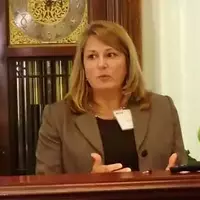ASCN Community Welcome Call
Thursday, March 16, 2023
10-11 am PT | 11am-12pm MT | 12-1 pm CT | 1-2 pm ET
Presenters: Charles Henderson, Western Michigan University; Kadian Callahan, Kennesaw State University; Andrea Beach, Western Michigan University; and Casey Wright, Western Michigan University
Abstract
The ASCN Hub Members (Charles Henderson, Kadian Callahan, Andrea Beach, and Casey Wright), will welcome new and interested members into the ASCN community. We will begin with a brief network overview presentation and then offer time for new, new(ish), and interested network members to chat in smaller groups with the ASCN Hub about their interests and how the network can support them.
Audience
Anyone interested in becoming a change agent is welcome! We welcome ASCN Network Members who have joined the network in the last year, network members who are interested in moving from receiving network resources to active membership in the network, researchers involved in studying change in higher education, and practitioners of change.
Goals
Attendees will learn about how ASCN functions and how to access ASCN resources. Participants will also learn about each of our working groups, their recent efforts, and how to get involved.
Logistics
Registration deadline: Tuesday, March 14, 2023
Time - 10 am PT | 11 am MT | 12 pm CT | 1 p ET
Duration - 60 minutes
Format - Online web presentation via Zoom web meeting software with questions and discussion. Go to the webinar technology page for more information on using Zoom. Detailed instructions for joining the webinar will be emailed to registered participants one day prior to the webinar.
Preparation - There is no advance preparation required for this webinar.
Please email Bradlee Wahid Cotton (bcotton@carleton.edu) if you have any technical questions about this event.
Presenters
Recording
Community Call Transcript (Text File 57kB Mar30 23)
Resources
- Welcome Call Slide Deck
- ASCN Resource Collection
- Working Group Pages
- Transforming Institutions 2023 Conference
ASCN achieves its aims through Resource Curation and Creation, Endorsing Ideas and Resources, and Cultivating Connections for the STEM higher education ecosystem. Below are some links to resources and working groups to get more involved!
Resource Curation and Creation
Change Agent Resources
Where do I start with Change? – starting guide for those new to systemic change work
How Can I lead and Support Change? - a short starter guide to leading change initiatives in STEM higher education
Working Group 3 Critical Resources- resources for change leaders
Working Group 6 Critical Resources - resources to promote the development of institutional cultures where continuous improvement of teaching is valued
Teaching Evaluation Change Initiatives Repository – collection of programs and tools to restructure how teaching is evaluated in STEM higher education
Working Group 2 & 4 Critical Resources for Demonstrating Impact - tools and examples that can help with evidence-based fiscal decision making:
The Change Dashboard – visual planning and communication tool for change agents working in higher education to create an action plan for change
Change Researcher Resources
Where do I start with Change? – starting guide for those new to systemic change work
Transforming Institutions: Accelerating Systemic Change in Higher Education – Edited Volume - summarizes leading edge understanding of how to transform STEM education through models, institution and network scaled change, and the leadership developing to do this
Change Theories Summaries- summaries of change theories, how they have been used in the context of STEM higher educational change, and key information and references
Endorse Ideas and Resources
Webinars and Short Courses – collection of past and upcoming online events to elevate the work of change agents and change researchers
Blog – mix of created resources and endorsed resources organized by change topic
Cultivating Connections
Transforming Institutions Conference: Our biennial conference will be held in Minneapolis, MN June 12-13 this year. The presentation abstract deadline has passed, however, there is still time to submit abstracts for poster presentations. This conference brings together our membership and beyond to address systemic change in STEM higher education.
Working Groups – the landing page for our working groups lists each working group and their mission
Working Group Meetings and Informal Discussions – listing of the connection information for working group meetings.
Working Group 1: Guiding Theories - This working group seeks to help people engaged in change efforts learn more about change theories and models that could profitably inform systemic change work. This working group also aims to support researchers studying systemic change by facilitating discussions and building resources related to change theory.
Working Group 2&4: Costs, Benefits, and Demonstrating Impact - This group explores the financial and social costs and benefits of implementing, scaling and sustaining instructional changes in undergraduate STEM education. Identify, explain and disseminate information on metrics that hold the potential to document, foster, accelerate, and communicate systemic change.
Working Group 3: Change Leaders -This group works to identify important roles and activities in the change process and articulate how people in different organizational levels and positions accomplish change. Attend to who must be engaged in change efforts, what skills they need, and how these skills can be developed.
Working Group 5: Equity, Inclusion, Diversity, and Social Justice: This group explores the intersection of equity, inclusion, diversity, and justice with systemic change in higher education. We will identify common ground, promote opportunities for collaboration, and this will be informed by lived perspectives from diverse stakeholders. It aims to support administrators, faculty, students, and staff; and promote access, participation and success for all parties.
Working Group 6: Aligning Incentives with Systemic Change: This group promotes the development of institutional cultures where continuous improvement of teaching is expected, valued, assessed, and rewarded at all stages of a faculty member's career.
Working Group 7: Learning Spaces: This group explores the design and use of learning spaces in higher education. In particular, the group focuses on equitable and inclusive access to learning spaces including physical and pedagogical access.



![[creative commons]](/images/creativecommons_16.png)



